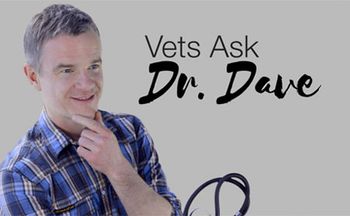
Stay connected with your veterinary clients by working on your listening skills. Veterinary practice management specialist Dave Nicol shares a few techniques you can implement in your practice to help strengthen your listening skills.

Nicol is a graduate of Glasgow University Veterinary School in Scotland. He initially set out with plans to become a surgeon, but almost immediately was drawn into general practice by the interaction with pet owners and the problem-solving opportunities that cropped up each day. Initially, this meant finding and fixing animal problems, but quickly it became clear that there were plenty of problems with how practices worked as well.
Driven to fix these problems, Nicol was a constant thorn in his bosss side and eventually, after years of nagging, was given the opportunity to mentor his first junior vets. After his initial attempts fell someway short of expectations, he realised that raw enthusiasm alone was not going to be enough. So he began a journey to educate himself on how to be a better leader and coach.
Fast-forward more than a decade and Nicol has undertaken a huge amount of business training and research, building a reputation as a successful business leader within the veterinary industry. He has managed large teams of vets in corporate practices in Britain and has more recently owned, managed and successfully sold his smaller veterinary hospitals in Australia too.
Prior to relocating back to the UK, Nicol sat on the board of Love That Pet Group Australia as Chief Veterinary Officer, where his principal responsibilities were creating and maintaining the standard of clinical care and the building and development of the clinical teams.
Nicol has authored four books, published hundreds of articles in Europe, North America and Australia, and produced a best-selling online training course for vets, nurses and managers.
It is his personal mission to help pets and their people live happy, healthy lives by exploring the daily challenges we face, creating solutions and helping others to grow.

Stay connected with your veterinary clients by working on your listening skills. Veterinary practice management specialist Dave Nicol shares a few techniques you can implement in your practice to help strengthen your listening skills.

Its already tomorrow in Australiadoes that mean theyre living in the future? Heres one issue that veterinary professionals in the U.S. might see in their own practices sooner rather than later.

Dr. Dave Nicol says it forces you to grow.

Instead of forming a knee-jerk opinion, start asking questions. You'll get a clearer picture of how things got the way they are.

Dr. Dave Nicol wonders if veterinarians' unique proximity to death is related to the profession's disproportionate suicide rate.

Burn through your to-do list the right way with these easy steps from Dr. Dave Nicol.

Those reports aren't going to complete themselves. Ehh, just stay a few extra hours.

Does this sound like an economically (or ethically) viable scenario to you? EhhDr. Nicol doesn't think so either.

You're not alone in wondering. CVC educator Dr. Dave Nicol takes on imposter syndrome.

Pained veterinary associates get the help they need in our first bonus-length Vets Ask Dr. Dave.

Dr. Dave Nicol says veterinary clinics still need to step up their social media/digital marketing games, lest "the crazy people" have the final say.

Watch this video immediately! Or, you know, put it off for a few days.

Use these three tips to improve your workday today.

You want to hire the best veterinary employee, but if you're guilty of these blunders, you might end up with duds.

Easy tips to blow up your team and sabotage your clinic culture from Dr. Dave Nicol!

Make client contact easy.

Dave Nicol sheds some light on what veterinary clients don't want to see on your hospital's website.

You don't have to Google the answers to this one-they're right here.

Maximizing your web presence isn't rocket science.

Turn web traffic into foot traffic.

Avoid these five tweeting styles that will get on your veterinary clients' and potential clients' nerves.

Q. Why is it important for veterinary practices to engage in social media sites like Facebook and Twitter?

Q: What leadership style is best for veterinary practice?

Take recruitment and induction seriously if you want a top performing practice.

The first part of this session will give an overview of the global veterinary market focusing on the UK and US which are both currently stricken by recession. It is the presenter's belief that we are in for a very hard few years as vets and we are no longer a recession proof business.

For a veterinary clinic to deliver a successful and sustainable service certain things have to be in balance: People, Profit and Practice

Is there such a thing as a bad employee? Or are these issues just down to bad management?

There are many different types of leaders and different styles a re required for different people and situations. The idea of a one size fits all is outdated. A good leader must have the ability to recognize what style of leadership best suits the situations that occur in day to ay practice. Learning this skill will enhance your effectiveness and value as a team leader.

This session will be particularly good for those who struggle with managing people. By the end of the session, delegates will be understand how the creation of clear and linked objectives for all team members will boost performance and take the ambiguity and certainty out of managing the veterinary team.

CVC speaker discusses what students need to know about management before they're out in the "big bad world."

Published: February 1st 2013 | Updated:

Published: October 17th 2012 | Updated:

Published: August 2nd 2012 | Updated:

Published: January 1st 2011 | Updated:

Published: January 7th 2011 | Updated:

Published: October 1st 2011 | Updated: